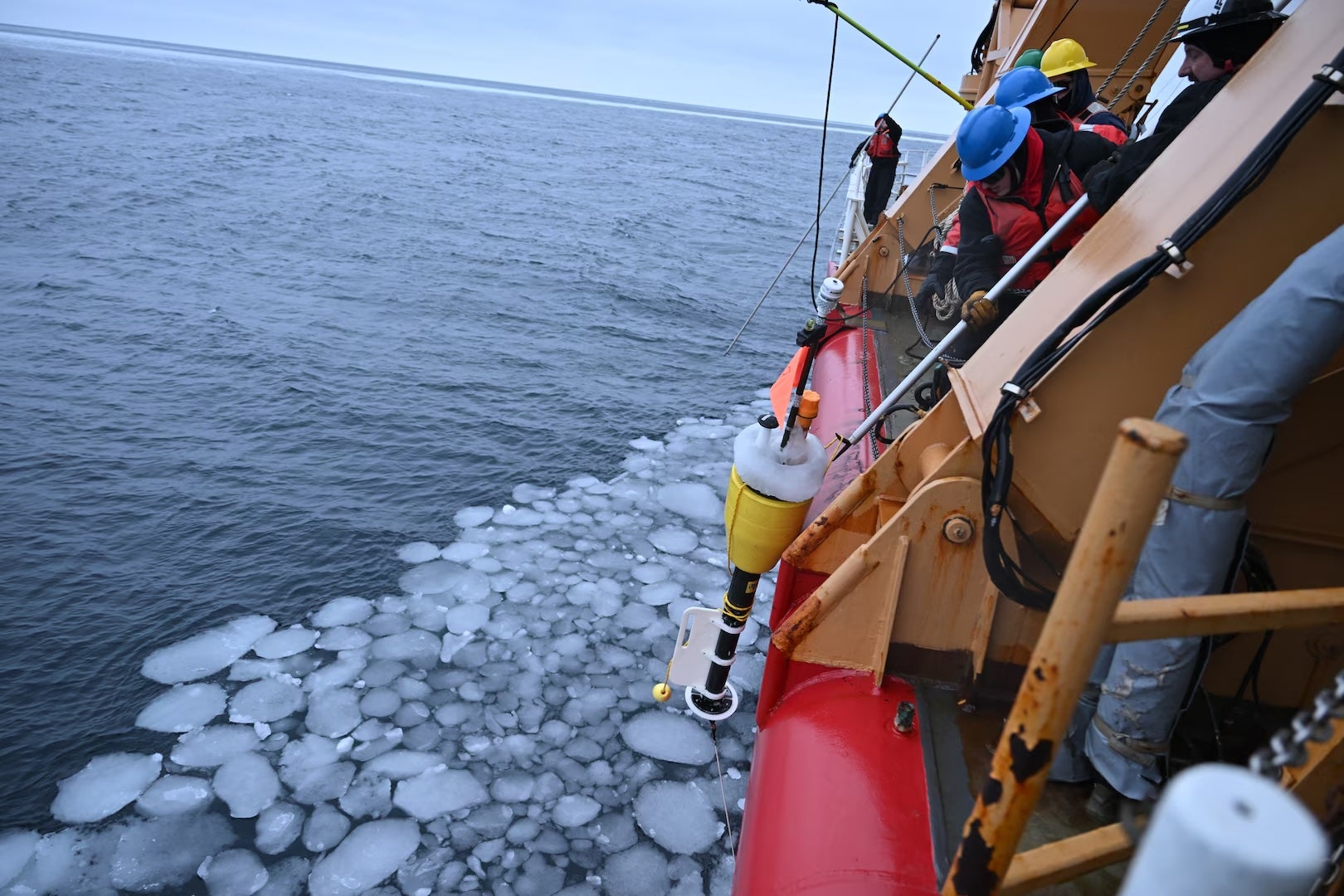Scientists might have found a new volcano, but unless you're a fish, it probably doesn’t pose much danger.
Working off the coast of western and northern Alaska, the Coast Guard Cutter Healy’s research teams, including members from the National Science Foundation, the University of New Hampshire, and the National Oceanic and Atmospheric Administration, were there to conduct Artic Ocean seafloor mapping near Alaska and survey uncharted waters of the Chukchi and Beaufort Seas.
Then, they found a new volcano-like formation deep in the ocean waters.
The new volcano-like structure sits more than 1,600 meters from the water's surface. So, it's far too deep to pose a danger to those on land.
However, scientists detected a possible gas plume rising from the feature and the gas nearly reaches the surface.
The Coast Guard said the new mountain range or gas plume does not pose any risk to vessels.
“Although data analysis is ongoing, these findings are exciting and offer insight into what may exist beneath the ocean’s surface, much of which is unknown in this region,” Captain Meghan McGovern, commanding officer of NOAA Ship Fairweather, said in a statement.
Crews above the Healy were on a scientific mission when the range was found.
At 420 feet long, the Healy is the branch’s largest vessel and the Coast Guard’s only icebreaker designed to support research.

The trip was part of a larger project called the Alaskan Arctic Coast Port Access Route Study, which was enacted to evaluate the need for establishing vessel routing measures.
The Healy has since returned to Seattle, Washington. It left Washington for Arctic deployment in June.
“It’s an honor supporting such diverse research missions in the northern high latitudes while working towards enhancing navigation safety in a region where soundings are sparse,” said the Healy’s Commanding Officer Capt. Michele Schallip.







